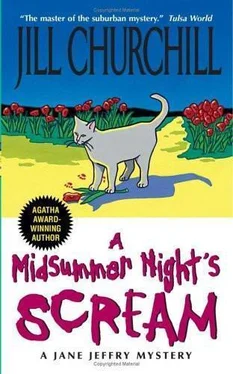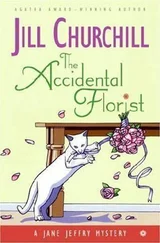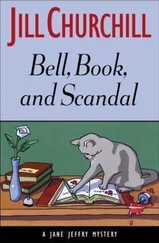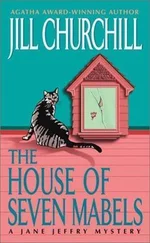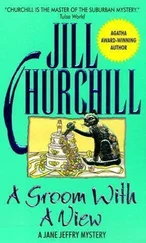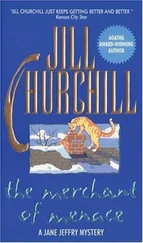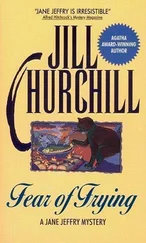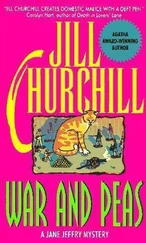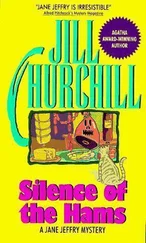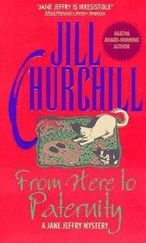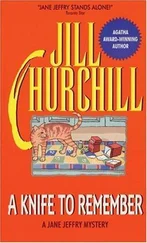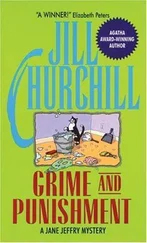"Have you talked to the Buntings' daughter?"
"I have. She said quite frankly that if her mother had divorced him as soon as she, the daughter, was born, her mother could have been a real star in her own right. He held her back from some great offers of roles because there wasn't a role for him in them. Gloria Bunting could, the
daughter says, have rivaled Helen Hayes in her prime. Even now, it's her mother that the grandchildren love. They have no interest in their grandfather at all. Nor does he show them any affection."
"How sad that is."
"Not necessarily. The kids love their grandmother, and so does her daughter. And to my mind, they're all happy enough with that. John Bunting doesn't enter into the relationships, and nobody cares anymore."
"What about the guy who replaced Denny?"
"I don't think he needs an alibi. He was invited by Imry to watch the rehearsal. He didn't know why. Imry offered him Denny's role, which he turned down because it would hurt his, Norman's, reputation to help Imry fill someone else's role. It wasn't until Denny died and Imry contacted him again, saying that Denny had died, that Norman agreed. And even then, Imry hadn't mentioned that Denny had been murdered."
"Another proof of what a jerk Imry is," Jane said.
As she spoke, her cat, Meow, hopped over the fence with a mole in his mouth. Jane leaped up, grabbed a shovel, and forced Meow to drop it, then threw it back over the fence into the vacant lot behind her own house.
Twelve
Mel and Jane had both become used to Max and Meow's feline hunting antics. When Jane sat back down, Mel said, "Joani Lang hasn't an alibi, exactly. She claimed she'd gone to a bar to meet a girlfriend who didn't show up. The bartender says she spent the time trying to pick up men. Apparently none of them suited her, or maybe vice versa. The bartender doesn't remember when she left. Or if she left alone or with some guy."
"Who else have you questioned?"
"Jake Stanton. He and his wife had a late dinner with another couple. They went home at ten-thirty and watched a movie. They described it and it was one I've seen. But it's not proof of an alibi — they could have watched it the day before. But I tend to believe them.
"Bill Denk says he just went home and read until he fell asleep. The prop guy, named Tommy Rankin, who has an antiques shop but likes the‑
ater, says he doesn't remember where he was, but says he wasn't at the theater that evening for sure. He'd been there earlier to get a fix on what he needed in the way of furniture, flowers on tables, and such. Same with the students who are painting the set. They both went home to study for their classes the next day. And that Chance woman was at a fund-raiser for another project. She and her husband went home around ten."
"Who else had keys?" Jane asked.
"There's a stagehand. Buddy Wilson. He says he wasn't needed until the dress rehearsal and never had reason to use the key and thinks he's lost it anyway. The lighting specialist and his two assistants, who are theater students, won't be needed until Monday evening's rehearsal. They did a preliminary study of the script and stage two weeks ago and checked that the equipment was working.
"You do understand," Mel went on, "that I wouldn't be talking to you about this except that you and Shelley have spent more time with these people than I have. I'm just letting you know my impressions so you two can confirm or deny them based on what you've seen and heard."
This was true. Mel had seldom asked Jane and Shelley for advice in earlier crimes when they'd been acquainted with some of the possible perps. That, of course, didn't stop them from sharingwhat they knew. He usually listened and didn't comment. Jane was flattered to be asked.
"We really only know about Ms. Bunting," she replied. "We've taken her to the needlepoint shop, and a lunch, and back to her hotel. We bought her a gift. Then the next day we took her to the needlepoint lesson. A nosy person asked her some personal questions, which she answered, and then she abruptly changed the subject back to needlepoint."
"What did she say about herself?"
Jane replied, "She'd gone shopping for her grandchildren and spilled baby toys out of her bag. The snoop asked if her daughter didn't have to be pretty old to have babies. Which was insulting. It seemed to me to suggest that Ms. Bunting is even older than she is."
"How old is she?"
"I really don't know. I'd guess early seventies. Ms. Bunting said she was in her early forties when she got pregnant. So the daughter would be around thirty."
"When I interviewed her daughter, that was what I would have guessed," Mel confirmed.
"Anyway, Ms. Bunting replied that it wasn't her daughter who was too old to have babies. It was she herself who had the daughter quite late in her life after three miscarriages when she was young."
Mel said, "That must have been a hard thing for her. Three in a row."
Jane was a bit surprised that any man could understand how difficult it might be to face miscarriage after miscarriage. She'd known several women who'd had one or even two and were devastated by it, fearing they were doomed to be childless forever.
"What did the rest of the people who knew Denny seem to think of him?" Mel asked.
"Shelley and I didn't like him. And when he bragged about being in a film at Sundance that won awards, one of the men said Denny had only been an extra."
"Which one said that?"
"I'm not sure. Shelley might remember. But it could just have been a guess anyway. Denny was very arrogant."
"What were your impressions of the rest of them? John Bunting, for example?"
"And old lech with bad breath," Jane replied instantly. "He made a point of sitting really close to Joani the first night," she went on. "She was wearing a really loose top and he was trying to get a good look at her breasts. Joani moved away from him just as Ms. Bunting told him to behave himself. He did know his lines, however. He sort of slurred them, but he had the words right."
"A heavy drinker?"
"Possibly. No. Probably. Did his old pals who got together say anything about his drinking?"
"They led me to believe they were all tanked by the time they left. I can't see how the rest of them are so successful in business if this is their usual alcohol consumption. But it might be Bunting's norm."
"I'd guess that's true."
Suddenly Mel changed the subject. "Since you fed me such a nice breakfast, let me return the favor. Let's go out to a really expensive restaurant tonight."
"You're on."
It wasn't to be.
Mel called her back at noon. "I'm going to have to back out of dinner. The janitor at the theater was found a while ago in the alley behind the same theater."
"Dead?"
"Not quite. In a coma. Not expected to survive."
"Same kind of weapon?"
"We don't know yet. The hospital is doing X-rays as we speak."
"I was looking forward to dinner, but I understand. I can occupy myself tonight with writing and needlepointing. Do get back to me when you know more, if you have time."
When she hung up, she called Shelley and told her about the janitor.
"Who would want to attack a janitor?" Shelley asked.
"I have no idea. Mel said he'd call me back when he knew more. Let's go get some good coffee and I'll tell you about the conversation I had with him this morning."
When they had their coffee and were sitting in a little park across from Starbucks, where no one could overhear them, Jane said, "For almost the first time, he asked what we thought of the rest of the cast."
"Amazing. What did you tell him?"
Jane recounted the conversation, including who had alibis and who didn't. Who had keys to the theater. Mel's impressions of the people he'd interviewed.
Читать дальше
